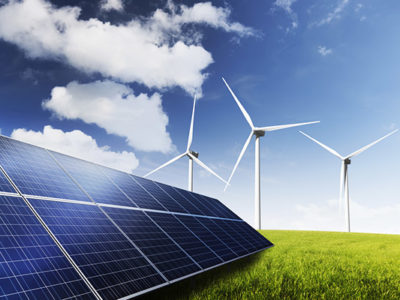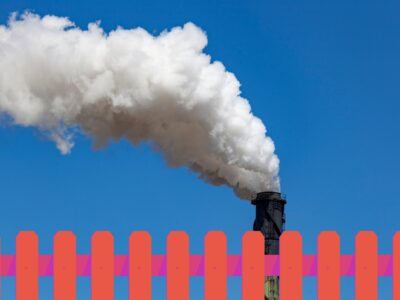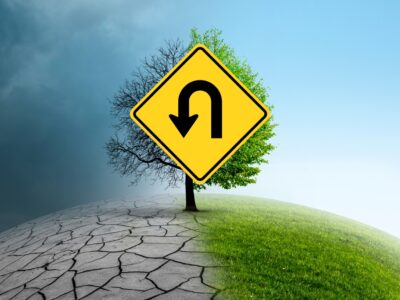Time to Get Serious about Climate Change and Oceans
Science can unlock powerful tools to fight climate change and ocean acidification, but only if we fund research and govern it well.

In the Before Time, I spoke with a few ocean scientists on climate issues, and I heard a common refrain. Climate change receives little attention or funding, considering the magnitude of the problem; climate impacts on oceans get even less; and marine carbon removal gets almost none at all.
Humans are short-lived terrestrial creatures. When we do think about climate change, we tend to focus on its immediate impacts on land, like hurricanes, heatwaves, droughts, and forest fires. But the oceans are also undergoing massive changes. Ocean waters are warming and their chemistry is changing—becoming more acidic at a faster rate than any seen in the past 65 million years (and ten-times faster than the acidification rate preceding a mass extinction 55 million years ago). The scale and speed of those changes forebode significant impacts on ecosystems and human societies for centuries to come. We need more resources and research in this space: to better anticipate climate’s impacts, to develop adaptation strategies, and to draw carbon dioxide from the atmosphere.
I recently published a short piece with my colleague Wil Burns in One Earth, describing the need for more funding and smart governance on marine carbon removal strategies. We specifically examined an idea called artificial ocean alkalinization (“AOA”), a technique that would increase ocean carbon uptake by depositing certain minerals into the ocean, limiting ocean acidification in the process. (If you’re curious for more details, I wrote a rather in-the-weeds post about AOA on this blog earlier this year.)
Our argument is simple. AOA’s potential for carbon removal and anti-acidification makes it an idea worth exploring, especially considering the gigatons of negative emissions needed to safely stabilize the climate. We’re wary, though, of the hype and carelessness associated with ocean iron fertilization, another marine carbon removal idea that fizzled out in the 2010s. That’s why research into AOA should proceed cautiously and in alignment with sound international governance.
Good governance of marine carbon removal entails some commonsense and not-so-burdensome requirements. Open experiments up to review by other scientists. Consult with national governments. Undergo environmental assessments. Minimize risks to marine ecosystems. These steps can ensure better data, greater legitimacy, and less harm at relatively low cost.
We need to move quickly and carefully on marine carbon removal. For AOA, this means starting small, focusing on its potential climate adaptation benefits (that is, anti-acidification). Emphasizing its potential as an adaptation strategy would allow researchers to build support among stakeholders historically and understandably wary of carbon removal proposals. It would also allow AOA to avoid some of the hype-cycle that has come with other climate-fix technologies.
As we conclude in the piece:
Experience with local AOA treatments might encourage greater depositions to capture more carbon. It might not. But this moderate path—gradual, incremental exploration of AOA as an adaptation measure with [carbon removal] as a potential co-benefit—would allow governance structures to mature alongside advances in technical understanding. Future policymakers would then be well positioned to decide whether to scale up AOA for [carbon removal]. The risks, rewards, and uncertainties of deployment would be better understood.
You can read more about AOA in One Earth, here.
Reader Comments
3 Replies to “Time to Get Serious about Climate Change and Oceans”
Comments are closed.








Charles, the tragic reality check on our survival was made by Sir John Maddox who
documented a very disturbing fact of life in his book “What Remains to Be Discovered” in the chapter “Avoidance of Calamity” that warned “— small armies of scientists will be required to remove persisting uncertainties and to devise effective strategies for the avoidance of calamity — The experience of recent years in rich countries is not encouraging. Research communities are everywhere under pressure to be more ‘relevant,’ usually understood to mean that they should assist with national competitiveness in the production and sale of tangible traded goods.”
It has been proven far too many times since this reality check in 1998, that far too many academics have sold out the future of the human race to the power of money, and UC is as guilty as any university in the world.
Mr St John, Therefore, academics are not to be trusted? Perhaps you prefer the industrial/military complex’s stellar record in this regard? No? Then who?
Good question, basically I’ve been quoting people like Sir John Maddox and President Eisenhower to certify my complaints about endemic corruption of academics who sell out to the power of money that causes out of control global warming, pandemics, violence and inequalities that are threatening the survival of the human race today.
Such acts include marginalizing Linus Pauling even though he won Nobel Peace and Chemistry Prizes and discovered molecular biology that could have prevented the pandemic we are dying from today, marginalizing Edward Teller (Father of the H-Bomb) who was founder of LLNL and told members of my 1963 Cal class that he expected we would have fusion power plants by the end of the 20th century that could have prevented hellaciously destructive global warming we are experiencing today, selling out to corporations like BP that contribute to accelerating global warming destruction today, and the culture of academics who refuse to inform, educate and motivate the public to protect the human race because of their culture of academic purity that Hofstadter exposed.
We need a culture of academics who are dedicated to producing and perpetuating an acceptable quality of life for our newest and all future generations.
As the Durants concluded in their Story of Civilization, it is politicians or academics who destroy civilizations.